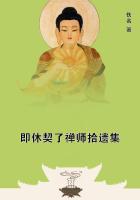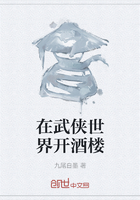The weeks passed. Martin ran out of money, and publishers' checks were far away as ever. All his important manuscripts had come back and been started out again, and his hack-work fared no better. His little kitchen was no longer graced with a variety of foods.
Caught in the pinch with a part sack of rice and a few pounds of dried apricots, rice and apricots was his menu three times a day for five days hand-running. Then he startled to realize on his credit. The Portuguese grocer, to whom he had hitherto paid cash, called a halt when Martin's bill reached the magnificent total of three dollars and eighty-five cents.
"For you see," said the grocer, "you no catcha da work, I losa da mon'."
And Martin could reply nothing. There was no way of explaining.
It was not true business principle to allow credit to a strong- bodied young fellow of the working-class who was too lazy to work.
"You catcha da job, I let you have mora da grub," the grocer assured Martin. "No job, no grub. Thata da business." And then, to show that it was purely business foresight and not prejudice, "Hava da drink on da house - good friends justa da same."
So Martin drank, in his easy way, to show that he was good friends with the house, and then went supperless to bed.
The fruit store, where Martin had bought his vegetables, was run by an American whose business principles were so weak that he let Martin run a bill of five dollars before stopping his credit. The baker stopped at two dollars, and the butcher at four dollars.
Martin added his debts and found that he was possessed of a total credit in all the world of fourteen dollars and eighty-five cents.
He was up with his type-writer rent, but he estimated that he could get two months' credit on that, which would be eight dollars. When that occurred, he would have exhausted all possible credit.
The last purchase from the fruit store had been a sack of potatoes, and for a week he had potatoes, and nothing but potatoes, three times a day. An occasional dinner at Ruth's helped to keep strength in his body, though he found it tantalizing enough to refuse further helping when his appetite was raging at sight of so much food spread before it. Now and again, though afflicted with secret shame, he dropped in at his sister's at meal-time and ate as much as he dared - more than he dared at the Morse table.
Day by day he worked on, and day by day the postman delivered to him rejected manuscripts. He had no money for stamps, so the manuscripts accumulated in a heap under the table. Came a day when for forty hours he had not tasted food. He could not hope for a meal at Ruth's, for she was away to San Rafael on a two weeks' visit; and for very shame's sake he could not go to his sister's.
To cap misfortune, the postman, in his afternoon round, brought him five returned manuscripts. Then it was that Martin wore his overcoat down into Oakland, and came back without it, but with five dollars tinkling in his pocket. He paid a dollar each on account to the four tradesmen, and in his kitchen fried steak and onions, made coffee, and stewed a large pot of prunes. And having dined, he sat down at his table-desk and completed before midnight an essay which he entitled "The Dignity of Usury." Having typed it out, he flung it under the table, for there had been nothing left from the five dollars with which to buy stamps.
Later on he pawned his watch, and still later his wheel, reducing the amount available for food by putting stamps on all his manuscripts and sending them out. He was disappointed with his hack-work. Nobody cared to buy. He compared it with what he found in the newspapers, weeklies, and cheap magazines, and decided that his was better, far better, than the average; yet it would not sell. Then he discovered that most of the newspapers printed a great deal of what was called "plate" stuff, and he got the address of the association that furnished it. His own work that he sent in was returned, along with a stereotyped slip informing him that the staff supplied all the copy that was needed.
In one of the great juvenile periodicals he noted whole columns of incident and anecdote. Here was a chance. His paragraphs were returned, and though he tried repeatedly he never succeeded in placing one. Later on, when it no longer mattered, he learned that the associate editors and sub-editors augmented their salaries by supplying those paragraphs themselves. The comic weeklies returned his jokes and humorous verse, and the light society verse he wrote for the large magazines found no abiding-place. Then there was the newspaper storiette. He knew that he could write better ones than were published. Managing to obtain the addresses of two newspaper syndicates, he deluged them with storiettes. When he had written twenty and failed to place one of them, he ceased. And yet, from day to day, he read storiettes in the dailies and weeklies, scores and scores of storiettes, not one of which would compare with his.
In his despondency, he concluded that he had no judgment whatever, that he was hypnotized by what he wrote, and that he was a self- deluded pretender.
The inhuman editorial machine ran smoothly as ever. He folded the stamps in with his manuscript, dropped it into the letter-box, and from three weeks to a month afterward the postman came up the steps and handed him the manuscript. Surely there were no live, warm editors at the other end. It was all wheels and cogs and oil-cups - a clever mechanism operated by automatons. He reached stages of despair wherein he doubted if editors existed at all. He had never received a sign of the existence of one, and from absence of judgment in rejecting all he wrote it seemed plausible that editors were myths, manufactured and maintained by office boys, typesetters, and pressmen.















